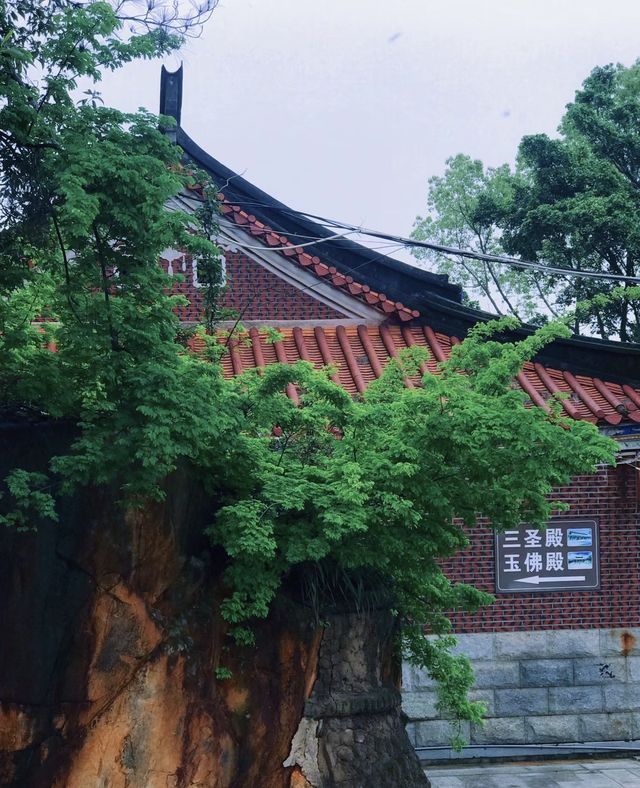Popular Trip Moments
Quanzhou Travel Guide | Anping Bridge Travel Guide: Cross the Millennium Ancient Bridge. | Fujian's most overlooked sea is hidden in Qixu Reef. | Xiamen-Gulangyu-Quanzhou 5-Day Tour | A Detailed Guide to Three Destinations. | Old Stories of Nanyang—Wulin Village and Little Nyonya. | Exploring the Ancient City of Quanzhou: Jinjiang Wulin Ancient Village and Sunshine Night Market | P-HOUSE Tianyang Xiangju is a poetic countryside in the city center of Quanzhou. | A must-stay in Quanzhou, the Quanzhou C&D Hotel offers views of the Jin River. | Quanzhou is a place worth exploring - Wulin Ancient Village. | Charming Chaodai Reservoir: A hidden gem. | Qishan Park: An ecological oasis in the city. | Quanzhou Jinjiang Wulin | Experience Nanyang style in a Minnan ancient village. | Enter Zhenhai Palace and experience its extraordinary cultural charm. | A hidden seaside paradise in Quanzhou, perfect for a happy holiday! | Lingyuan Mountain is a sacred mountain full of stories and legends. | Anhe Bridge: A legendary bridge that has witnessed the passage of time. | Puguang Temple: An ancient temple with a divine charm, a place for the soul to return. | Light and shadow become poetry in Xie Ke's new work in Quanzhou. | Quanzhou Jinjiang Zimao Mountain | Hidden gem check-in spot. | I stayed at the hotel and was healed by the sea! | In Jinjiang! The first choice for National Day gatherings! | Quanzhou! I brought my parents here and they praised me... The ceiling is really a feast for the eyes. | "Traveling by Sea, Born by the Sea" - Qi Xu Reef Hotel. | Jinjiang Wulin Village, Quanzhou, Fujian | Don't miss the century-old Nanyang-style ancient buildings. | Jue Lin Zen Temple, Yonghe, Jinjiang | A spiritual journey to the Tang Dynasty. | Jinjiang Anhai Lingyuan Mountain·Lingyuan Zen Temple. | A towering structure on a reef, a new work by Xie Ke in Quanzhou. | Check in to a traditional guesthouse in Quanzhou, a "century-old museum". | Quanzhou's beautiful hidden gem | Jinjiang Mine Pit Secret Park. | Wudianshi.
Popular Travel Types
Recommended Attractions at Popular Destinations
Bangkok attraction near me | Manila attraction near me | Tokyo attraction near me | Taipei attraction near me | Hong Kong attraction near me | Seoul attraction near me | Kuala Lumpur attraction near me | Los Angeles attraction near me | Shanghai attraction near me | New York attraction near me | Shenzhen attraction near me | Osaka attraction near me | Singapore attraction near me | London attraction near me | Guangzhou attraction near me | San Francisco attraction near me | Beijing attraction near me | Macau attraction near me | Bali attraction near me | Jakarta attraction near me | Paris attraction near me | Ho Chi Minh City attraction near me | Istanbul attraction near me | Phuket attraction near me | Chicago attraction near me | Seattle attraction near me | Toronto attraction near me | Orlando attraction near me | Cebu attraction near me | Chiang Mai attraction near me
Popular Attractions
Canton Tower | Guangzhou Sun Yat-Sen Memorial Hall | Zhouzhuang | Zhangjiajie Grand Canyon | Starting Point of Southern Silk Road· Jinmen Scenic Spot | Auckland War Memorial Museum | Universal Studios Japan | Melbourne Skydeck | Wuzhizhou Island | Phuket FantaSea | Cine Multiplex Canning | Universal Beijing Resort | Harbin Sightseeing Cableway | Hangzhou Songcheng Park | Jinjiang Action Park | Tai Hu Yuantouzhu Scenic Spot | Thrillzone Queenstown | SHIBUYA SKY | Uramigataki Hot Spring | Roys Peak Track | Akturuzim Parkı | Plaza Mariana | Canino Park | Mont Saint-Grégoire | Gut Renkhausen | Taman Kresek | Fasnacht Park | Nokiidaa Trail | Satlok Ashram Singhpura | Klausberge
Popular Restaurants in Jinjiang
榮譽國際飯店·雲頂旋轉餐廳 | 食錦記家宴 | 愛樂軒茶餐廳 | 星巴克(五店市店) | McDonald's (jinjiang SM ) | Guzhiwei (hepinglu) | KOI Thé | 清葉割烹料理 | 煌記車仔面 | 攬季音樂餐廳 | 小船壽司(萬達店) | MAN CHENG GA FEI | 小怣麵線糊 | 東大門韓國木炭烤肉 | Shantoubahelihaiji Beef (jinjiang) | 蝸牛法式甜品 | Linjiaminnancai (wudianshi) | 榕樹下咖啡 | L'UNICO意大利餐廳(泉州店) | Dafengshou·cui Fish (jinjiangwanda) | 九千代大極上居酒屋 | 鴨三甲·中華薑母鴨 | 骨之味·筒骨湯火鍋(晉江萬達店) | 侍宵·燒鳥·居酒屋(安泰天街店) | 悦宴·福建菜精品料理 | 平衡木咖啡 | 丼小暖茶飯和食 | 花漫裡(晉江萬達店) | 必勝客(晉江SM店) | 味之絕美蛙魚頭火鍋(晉江萬達店)
Popular Ranked Lists
Top 20 Local Restaurants in Zhengzhou | Popular Local Restaurants in Shanghai | Top 8 Night Attractions in Shaoxing | Popular Night Attractions in Mount Tai | Top 20 Local Restaurants in Frankfurt | Top 4 Luxury Hotels in Sweden | Top 19 Local Restaurants in Kuala Lumpur | Popular Night Attractions in Hong Kong | Popular Premium Hotels in Malawi | Top 19 Local Restaurants in Osaka | Top 18 Local Restaurants in Seoul | Top 18 Local Restaurants in Bangkok | Top 8 Night Attractions in Luoyang | Popular Luxury Hotels in Antigua and Barbuda | Popular Local Restaurants in Fuzhou | Top 17 Local Restaurants in Bali | Top 19 Local Restaurants in Xi'an | Popular Night Attractions in Wuhan | Popular Luxury Hotels in Anguilla | Top 5 Night Attractions in Yangzhou | Top 19 Night Attractions in Beijing | Popular Night Attractions in Kashgar Prefecture | Popular Luxury Hotels in Bhutan | Top 10 Local Restaurants in Boracay Island | Top 7 Night Attractions in Guiyang | Popular Local Restaurants in Beijing | Top 20 Local Restaurants in Taiyuan | Top 4 Night Attractions in Zhenjiang | Popular Local Restaurants in Harbin | Popular Night Attractions in Naxi River
Payment Methods
Our Partners
Copyright © 2024 Trip.com Travel Singapore Pte. Ltd. All rights reserved
Site Operator: Trip.com Travel Singapore Pte. Ltd.
Site Operator: Trip.com Travel Singapore Pte. Ltd.











